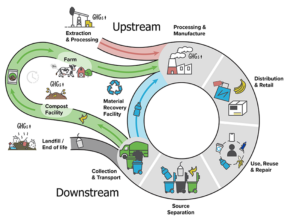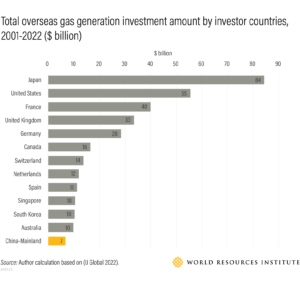
New regulations, investor demands and environmental realities are forcing finance teams to adopt new processes related to sustainable finance and ESG reporting — topics most of them haven’t previously prioritized.
There’s often a steep learning curve associated with that transition. A shortage of ESG-savvy finance professionals will prevent most companies from hiring their way out of this challenge. That’s why more should invest in upskilling existing finance and accounting teams about the subject matter expertise needed to finance the path to a net-zero economy.
The new world of stakeholder engagement
One area that deserves particular attention in the near term: Mandatory ESG disclosure regulations and reporting standards, which have created new data streams that are material to companies and their investors. That information must be collected, managed and publicly disclosed alongside financial statements.
Three big regulations driving this push are the European Union’s Corporate Sustainability Reporting Directive (CSRD), which will require certain companies to disclose and assure a broad range of ESG metrics; California’s Corporate Climate Accountability Package; and the U.S. Securities and Exchange Commission’s proposed climate disclosure rule. The latter two regulations focus, in particular, on corporate disclosure of greenhouse gas emissions.
Corporate finance professionals are also fielding investors’ questions about their sustainability practices and performance, because many are embracing net-zero strategies for their own portfolios: A June study of 770 global investors found 50 percent of respondents had made a net-zero commitment.
The bottom line is that more corporate stakeholders see ESG metrics as something to consider and manage alongside the financial bottom line.
ESG upskilling resources for finance teams
A number of organizations have sprung up to support accounting and finance professionals looking to add ESG reporting concerns or sustainability metrics to their subject matter expertise. Three that have served as community partners for various GreenBiz Group events are Accounting for Sustainability, Competent Boards and Impact Finance Center.
Each organization addresses a gap in sustainability competencies and provides multiple resources for individuals to develop the skills, knowledge and networks to succeed as sustainable finance or sustainable accounting professionals.
Accounting for Sustainability (A4S)
Launched as a charity in 2004 by the then-Prince of Wales, Accounting for Sustainability aims "to help ensure that we are not battling to meet 21st century challenges with, at best, 20th century decision-making and reporting systems."
Educational Offerings:
-
A4S Academy — an 18-month training program for corporate finance and accounting leaders that includes virtual programming and an exercise that helps students develop and implement a plan of action for their own sustainability challenge at work.
-
Workshops — concentrated courses on specific topics such as transition finance or CSRD are held in person and give participants the opportunity for peer exchange and learning, and to qualify for continuing professional education credits.
-
Webcasts — interviews with thought leaders who share how they're addressing sustainability within finance, planning and investment.
Pricing:
-
The majority of services and resources offered by A4S are free as part of its charitable mission, but some workshops require participants to apply before they can attend. The A4S Academy costs 4,500 British pounds.
Competent Boards
This organization was launched to provide ESG education to board directors and investors but has since expanded to include ESG, climate and biodiversity learning resources and corporate managers. Its mission is to create a shared language for communicating about ESG risk and opportunities.
The training features live and recorded lectures from expert faculty including former Unilever CEO Paul Polman, activist investor Engine No.1 Founder Chris James and the founding chairman of the Sustainability Accounting Standards Board, Robert Eccles.
Offerings:
-
ESG Certificate — a 12-course, self-guided online training program for business leaders, investors and board directors covering a range of ESG topics.
-
ESG Designation — a live online training program consisting of 12 sessions led by expert faculty. The credentials can be used to satisfy IFRS S1 and S2 requirements for sustainability and climate governance at the board and management levels.
-
Corporate Subscription — training on 18 leadership topics, along with draft language for use in governance and proxy statements as well as multiple assessments, networking, and updates on the latest ESG developments.
Pricing:
-
Competent Boards offers multiple tiers of ESG training services: the ESG certificate training costs $3,595, the ESG designation course is $6,495, and the corporate subscription starts at $45,000 per year for 10 seats.
Impact Finance Center (IFC)
The center was originally created to provide "non-conflicted" impact investing education and training for sustainability professionals seeking ways to finance projects. It has since expanded to include education and training for investors.
IFC specializes in information about how to leverage innovative approaches such as blended finance, public-private-philanthropic partnerships and partially recoverable grants to solve funding challenges that delay sustainability initiatives.
Offerings:
-
Fellowship Program — a one-on-one training program offered to a range of sustainability and finance professionals in corporate, investment and nonprofit roles.
-
Learning Circles — small-group training for accredited investors interested in investing in social ventures in a common geography or interest area.
-
Investing Accelerators — large-group training for asset owners; each member contributes to a pooled fund and participates in 9-12 workshops where the group sources, evaluates and makes investments in social ventures with the pooled fund.
-
Webinars — online events that cover a wide range of impact investing topics such as blended finance, sustainable forestry, diverse managers and corporate financial innovation; these resources can be accessed through the IFC Impact Investing Institute.
Pricing:
Are you a finance or accounting professional who recently embarked on an ESG and sustainability learning journey? If so, what resources have you found helpful? Let us know at [email protected].
- SEO Powered Content & PR Distribution. Get Amplified Today.
- PlatoData.Network Vertical Generative Ai. Empower Yourself. Access Here.
- PlatoAiStream. Web3 Intelligence. Knowledge Amplified. Access Here.
- PlatoESG. Carbon, CleanTech, Energy, Environment, Solar, Waste Management. Access Here.
- PlatoHealth. Biotech and Clinical Trials Intelligence. Access Here.
- Source: https://www.greenbiz.com/article/finance-teams-need-crash-course-esg-these-organizations-can-help
- :has
- :is
- :not
- :where
- $3
- $UP
- 000
- 1
- 10
- 12
- 20th
- 21st
- 24
- 50
- 500
- 7
- 9
- a
- About
- Academy
- accessed
- accountability
- Accounting
- accredited
- Action
- Activist
- add
- addresses
- addressing
- adopt
- aims
- along
- alongside
- also
- an
- and
- Apply
- approaches
- ARE
- AREA
- AS
- assessments
- asset
- associated
- assure
- At
- attend
- attention
- battling
- BE
- because
- before
- BEST
- Big
- board
- Bottom
- British
- broad
- business
- Business Leaders
- but
- by
- CAN
- Center
- Century
- ceo
- certain
- certificate
- chairman
- challenge
- challenges
- Charity
- check
- Chris
- City
- Climate
- commitment
- Common
- communicating
- community
- Companies
- competent
- Concentrated
- Concerns
- Conference
- Consider
- Consisting
- continue
- continuing
- contributes
- Corporate
- corporate finance
- Corporate Financial
- Costs
- course
- courses
- cover
- covering
- Crash
- create
- created
- Credentials
- Credits
- curve
- data
- Decision Making
- delay
- demands
- deserves
- designation
- develop
- developments
- dialogue
- Directors
- Disclose
- disclosure
- diverse
- draft
- driving
- each
- economy
- Education
- embarked
- embracing
- Emissions
- Engine
- ensure
- environmental
- ESG
- European
- events
- exchange
- Exercise
- existing
- expanded
- expert
- expertise
- Features
- finance
- financial
- financial innovation
- financing
- Focus
- For
- For Investors
- forcing
- Former
- found
- founder
- founding
- Free
- from
- fund
- funding
- gap
- GAS
- geography
- Give
- Global
- governance
- greenhouse gas
- Greenhouse gas emissions
- Group
- had
- Have
- Held
- help
- helpful
- helps
- Hiring
- How
- How To
- HTML
- HTTPS
- if
- ifrs
- Impact
- Impact Investing
- implement
- in
- include
- includes
- Including
- individuals
- information
- initiatives
- Innovation
- innovative
- Institute
- interest
- interested
- Interviews
- Invest
- investing
- investment
- Investments
- investor
- Investors
- IT
- ITS
- james
- journey
- june
- Know
- knowledge
- language
- latest
- launched
- leaders
- Leadership
- leading
- learning
- lectures
- Led
- let
- levels
- Leverage
- Line
- live
- looking
- made
- Majority
- MAKES
- manage
- managed
- management
- Managers
- mandatory
- many
- material
- Matter
- McKinsey
- Meet
- member
- Metrics
- Mission
- more
- most
- multiple
- must
- Near
- Need
- needed
- net-zero
- networking
- networks
- New
- New York
- new york city
- no
- node
- Nonprofit
- number
- NY
- of
- offered
- Offerings
- Offers
- often
- on
- online
- opportunities
- Opportunity
- or
- organization
- organizations
- originally
- out
- own
- owners
- part
- participants
- participates
- particular
- partners
- path
- Paul
- peer
- per
- percent
- performance
- person
- Place
- plan
- planning
- plato
- Plato Data Intelligence
- PlatoData
- portfolios
- pounds
- practices
- prevent
- previously
- prioritized
- processes
- professional
- professionals
- Program
- Programming
- projects
- protected
- provide
- provides
- proxy
- publicly
- Push
- qualify
- Questions
- range
- RE
- realities
- recently
- recorded
- recoverable
- regulations
- related
- Reporting
- require
- Resources
- respondents
- Risk
- ROBERT
- roles
- s
- Securities
- see
- seeking
- served
- Services
- sessions
- Share
- shared
- should
- since
- skills
- So
- Social
- SOLVE
- some
- something
- Sources
- specializes
- specific
- stakeholder
- stakeholders
- standards
- starts
- statements
- strategies
- streams
- Students
- subject
- subscription
- succeed
- such
- support
- Sustainability
- sustainable
- Systems
- taking
- teams
- term
- that
- The
- their
- Them
- These
- they
- this
- thought
- thought leaders
- three
- Through
- to
- Topics
- Training
- transition
- two
- u.s.
- U.S. Securities
- unilever
- Updates
- upskilling
- us
- use
- used
- various
- Ventures
- Virtual
- want
- was
- Way..
- ways
- we
- WELL
- What
- which
- WHO
- why
- wide
- Wide range
- will
- with
- within
- Work
- Workshops
- world
- year
- york
- you
- zephyrnet










